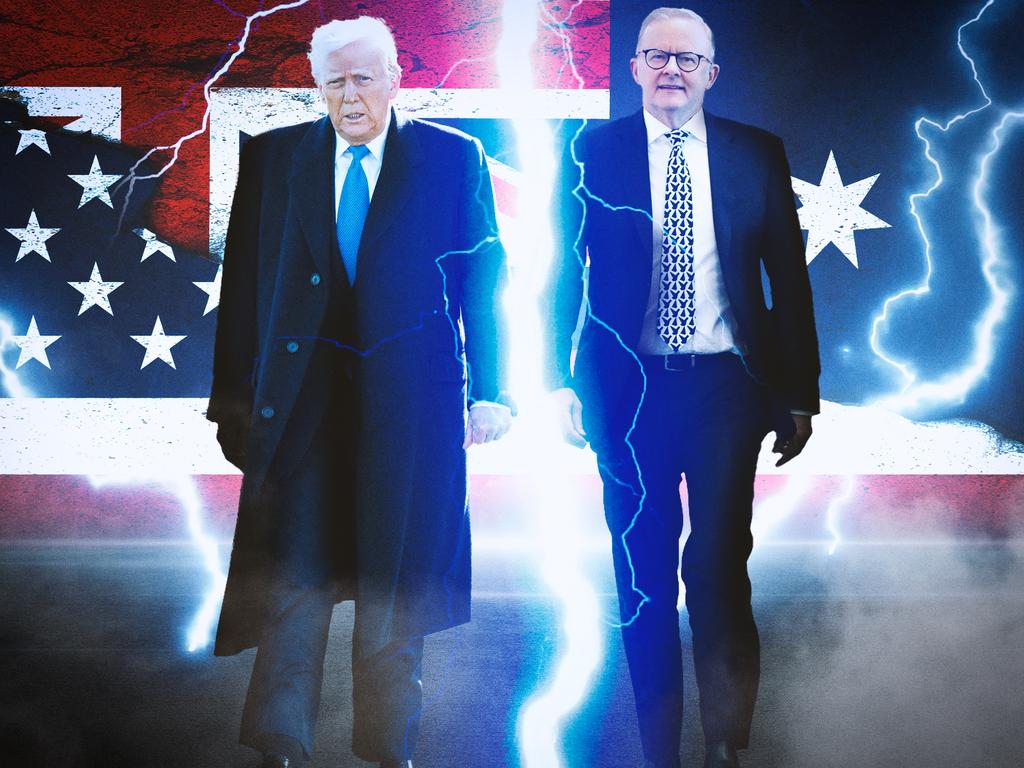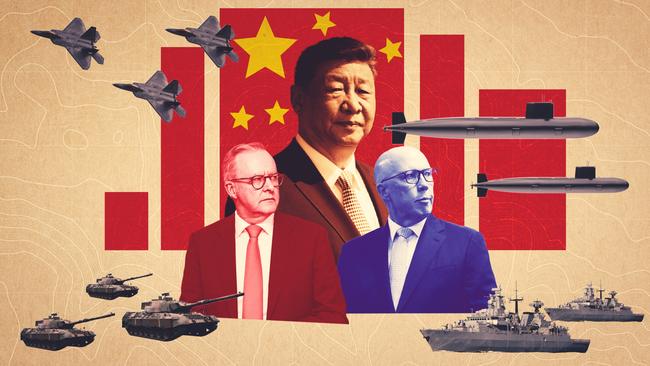
Donald Trump has grabbed the election spotlight. The media is besotted by how the Trump effect is assisting Anthony Albanese’s vote. Yet there is complete uninterest in how President Trump is transforming the world and the profound shock this will deliver to Australian security and life.
To call this a dumb election doesn’t even begin to get the point. This is an election with global power being transformed, with wars in Europe and the Middle East, a Trump-led America ditching its past global leadership role, with China and Russia on the strategic offensive and the assumptions guiding Australia’s defence policy for the past 70 years demanding urgent reassessment.
Yet defence policy is the poor relation in this campaign. It is hardly mentioned by the politicians. It is rarely the subject of a question by the media. It is almost as though a secret agreement exists among all campaign stakeholders to suppress the defence agenda.
Perhaps defence is too dangerous a topic. It would only agitate an electorate that doesn’t want another agitation. This election is focus-group driven, and neither the focus groups nor the wider public see defence and our future security as a priority.
The juxtaposition between our shoddy complacency and our strategic challenge was highlighted last weekend when historian Geoffrey Blainey wrote in this paper: “Australia was better prepared for the outbreak of World War I in 1914 than it is now prepared for almost any kind of international war.”
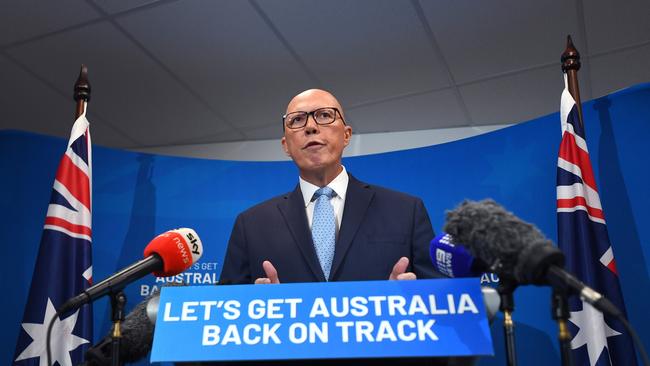
But the Australian culture doesn’t want to know. The trio of negative per capita income growth, the Covid legacy and an electorate focused on government benefits, spending and cost-of-living handouts is locked into a mindset of “what the government will do for me” and “who is ripping me off” – not how the structure that has underwritten our sovereignty and prosperity in the 125 years since nationhood is being dismantled.
History defies prediction. One can speculate, however, how this election may be seen in another decade or two: perhaps as an example of a profound national failure, when the challenge was manifest but neither the leaders nor the public was ready for the task.
The Albanese government wanted an election on domestic issues. That was apparent in the March budget when it made no changes, overall, to the quantum of defence spending, a revealing call given recent events: a Chinese flotilla circumnavigating Australia; Russia chasing strategic gains on our doorstep; Trump signalling his determination to be a less reliable global ally and a more demanding senior partner; and former ALP leader Kim Beazley calling for the defence budget to increase to 3 per cent of GDP.
Labor offers no defence or strategic initiative at the election. That judgment may yet brand this government irrevocably before history. Incredibly, with voting starting on Tuesday the Coalition had yet to unveil its defence budget policy.
In his interview with this paper last week, Peter Dutton attacked as “totally inadequate” Labor’s target of 2.3 per cent of GDP in 10 years. That suggested an ambition in the Coalition policy.
That prospect has been validated to an extent. The Coalition policy released on Tuesday night promises to lift defence spending to 2.5 per cent of GDP within five years – that’s significantly above Labor at that time. It also pledges to reach 3 per cent of GDP within a decade. That’s distinct progress. It reveals a sharp policy break and dispute between the parties. That’s good. Can we at least discuss defence during the next 10 days and redeem a disreputable campaign?
There are two problems. The question remains: why the delay? Why didn’t the Coalition release this promise weeks or months ago? Let’s be frank: the related problem is obvious. It isn’t enough, the 3 per cent needs to be reached much faster.
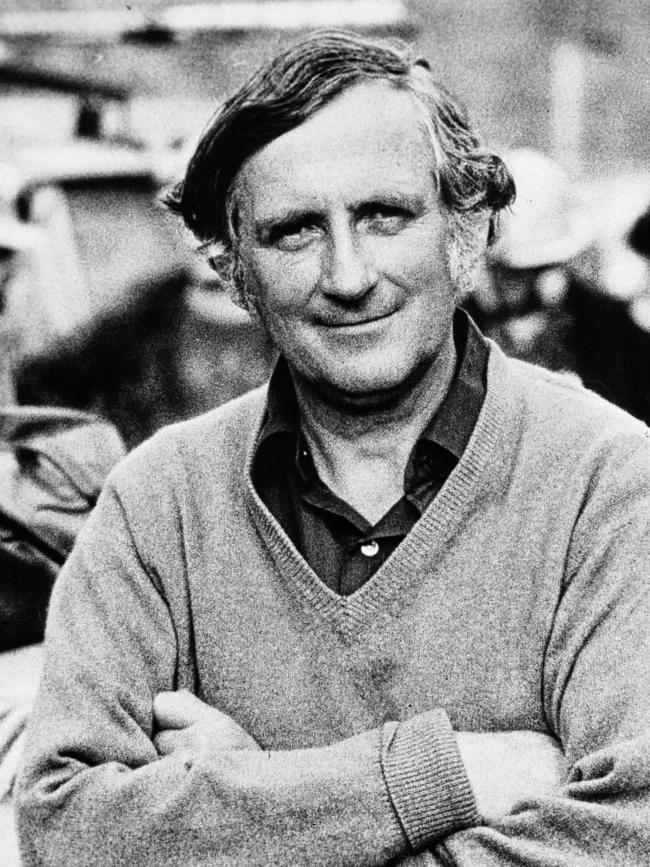
This goes to the dilemma of guns and butter, the perennial curse for democracies. But there is another issue. Will Trump notice? Might Trump intervene in the campaign in the final days by having something to say? That would presumably be bad news for the Coalition.
At the campaign’s inception Malcolm Turnbull convened a worthwhile one-day seminar on our strategic challenges with a range of experts putting different views. But there were three broad agreements – that Australia faced near unprecedented strategic challenges; that major increases and restructuring were essential for the defence budget ASAP; and that, to quote analyst Heather Smith, “the biggest challenge to overcome is the inability of our political class to position Australia for this new world”.
Smith’s remark penetrates to the most critical question in our political culture today: are our politicians operating as leaders or followers? Are they articulating the national interest or are they regurgitating the focus groups? The focus groups can deliver election victory but they never deliver the mettle of statesmanship.
There is a near universal agreement among participants in the defence debate – both right and left – that Australia must become more self-reliant in defence. That means both a bigger defence budget and a far better economic growth performance. Improved economic growth is not just a cost-of-living issue but an imperative in our strategic reinvention.
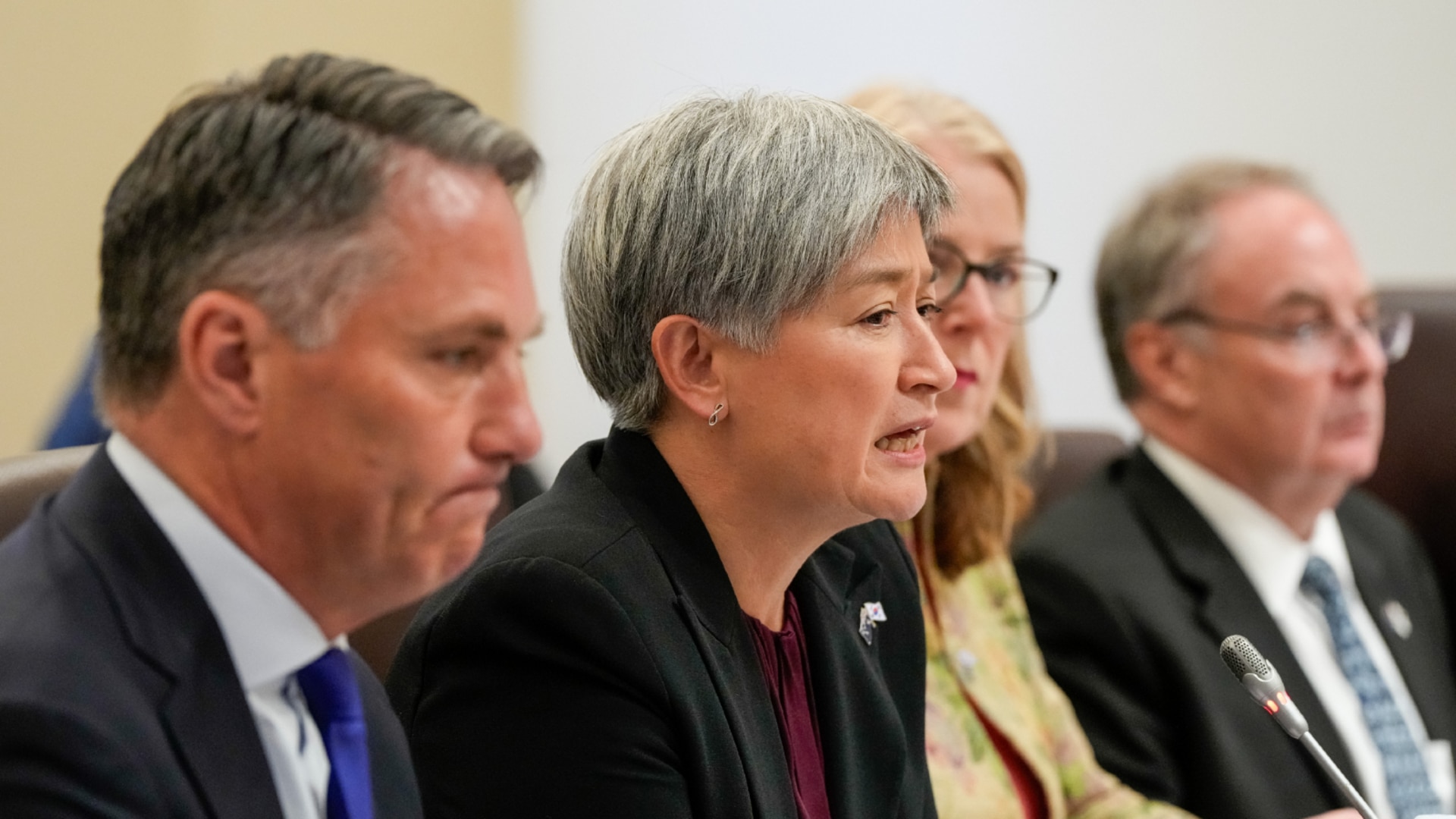
Brutal decisions will lie ahead. This was spelt out in the recent report, highlighted by my colleague, Greg Sheridan on Tuesday, coming from Strategic Analysis Australia with authors Marcus Hellyer, Michael Shoebridge and Peter Jennings. It begins with the reality: “America is no longer signed up to defending the global rules-based order and has little interest in helping its partners and allies to maintain a ‘free and open Indo-Pacific’.”
American power isn’t “reliably available” to Taiwan, The Philippines, South Korea or Japan. But Trump’s America is far more demanding. The report says Australia “has no credible argument for continuing to devote such a low share of its national wealth to meeting our security needs”.
It says of Labor’s defence budget that Trump’s return didn’t prompt any rethink, that the current budget is still only $770m above the 2016 white paper funding line, that current stagnation “refutes any suggestion that governments have transformed defence spending”. It calls for governments to put defence spending on a rapid trajectory to 3 per cent of GDP “before being coerced into doing so” but says this demands “substantial moral courage” from governments.
The report warns the current pursuit of “interchangeability” between American and Australian military systems now “looks out of step with reality”. It says the demands of AUKUS are such that it constitutes a “fourth service” in the defence force and that its renegotiation is a “credible possibility”.
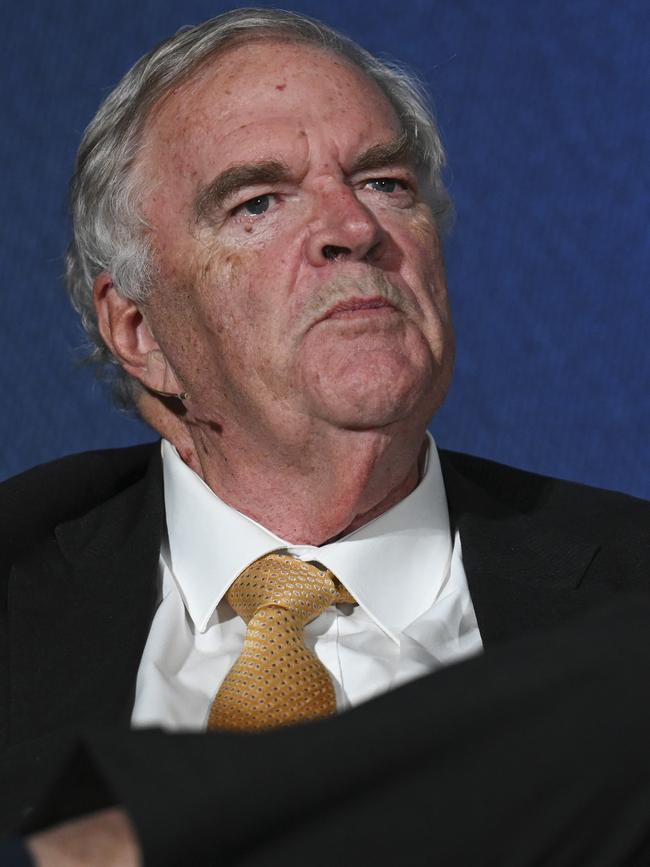
It is a poor reflection on our political campaign in all its dimensions that, to this point, the defence issue was not on the table in a campaign often littered with trivia and shallow point-scoring. The polls at present show not just a Labor victory but a deeply disengaged public.
The polls suggest the minor parties – teals, Pauline Hanson’s One Nation, the Clive Palmer party and independents – may perform strongly, not because they have any answers but as testimony to disillusionment with the Coalition and Labor. Have you heard any of the crossbench candidates talk defence or the profound challenge of Australian self-reliance?
The recent Lowy Institute poll reveals a dramatic slump in our confidence about America under Trump with 64 per cent of people saying they have no trust or not very much trust in the US to “act responsibly in the world”. Eight in 10 Australians reject Trump’s tariff policy.
But Albanese has pulled off a clever tactic – he declares his trust in Trump and ability to deal with him but then undermines and discredits Dutton for being too close to Trump. Nice if you can get away with it. But this just delays and obscures the big decisions ahead.


